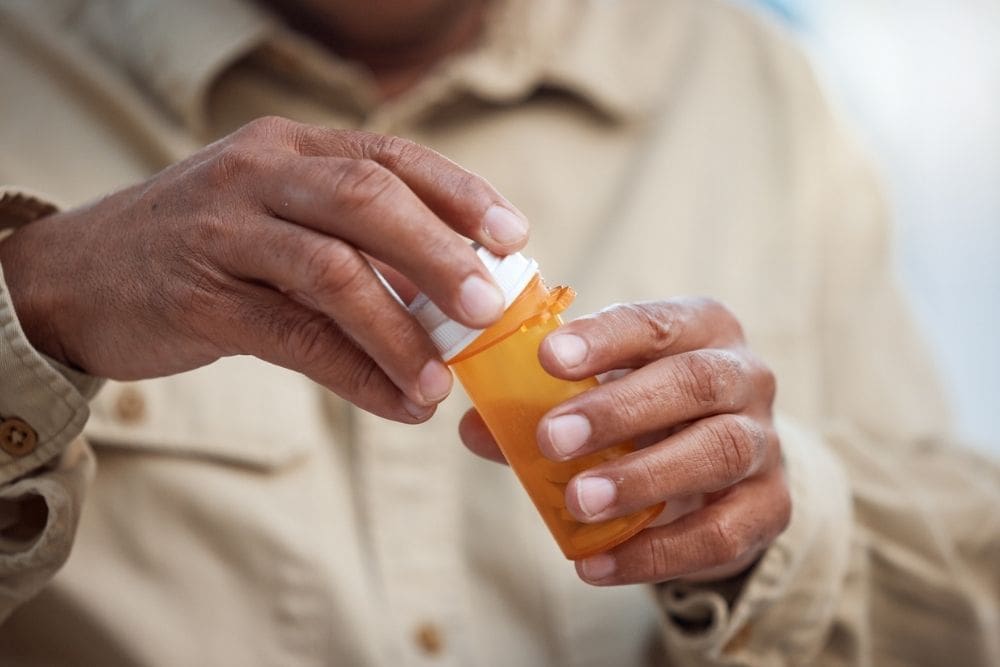If you live in Iowa, you may have noticed how common meth has become lately. But meth’s harmful effects aren’t just in news headlines. It can be a reality for you, your loved one, and hundreds of families in the Hawkeye State.
Local reports show meth use in Iowa keeps climbing faster than almost anywhere else in the country, spreading from small towns to cities and affecting people of every background. So if you’re worried about your own use, or scared for someone you love, you’re not overreacting. You’re just paying attention.
If you’re struggling with meth, there are so many reasons to reach out before rock bottom. To make things easier, help is right here in Iowa through St. Gregory’s residential treatment in Bayard, where people find effective, life-changing support every day. In the meantime, you can empower yourself by learning more about methamphetamine use disorder (MUD).
What Is Meth?
Meth, short for methamphetamine, is a powerful stimulant that speeds up your heart, your energy, and your thoughts. You might hear it called ice, crystal, or Tina. It usually looks like shiny shards or powder, and people might smoke it, snort it, or inject it.
However, it’s used, meth hits fast, and that’s part of what makes it so risky. It can make you feel like you can do anything and fast. You’re awake, confident, and buzzing with energy until the high fades hard, typically leaving you completely drained or anxious.
Here are meth’s common short-term effects:
- Intense energy and alertness that can create an ‘unstoppable’ feeling and later leave you exhausted once the substance wears off
- Less hunger and more wakefulness, potentially leading to long stretches without food or sleep
- A fast heartbeat and high blood pressure that could strain your heart
Here are meth’s longer-term effects:
- Major dental problems and skin issues, including painful sores
- Anxiety, paranoia, and aggression
- Compromised focus, memory, and decision-making skills
What Is Methamphetamine Use Disorder?
It’s important to know that using meth once doesn’t automatically mean you have MUD. But because meth can change your brain’s chemistry, it’s really easy for that one-time thing to become a constant pull. And meth can sneak up fast. At first, it might seem like you’ve got it under control—you only use here and there—but soon, it’s all you think about.
Methamphetamine use disorder, or MUD, is when meth starts running your life. It means you continuously use even when it’s clearly hurting your health, relationships, or pulling down the quality of your daily life. Over time, it might lead to intense cravings, risky behavior, or even dangerous overdoses, especially since fentanyl often shows up in the drug supply now.
Why Treatment for Meth Use Disorder Is So Important
On meth, you might feel great for as long as the high lasts, but then crash for days, fighting to climb out of the deep hole it traps you in. That’s why entering meth addiction treatment matters so much. It’s not just about stopping meth—it’s about getting yourself back.
If you’ve noticed your moods shifting, your health changing, or your energy feeling off, that could be one of the warning signs that it’s time for treatment:
- At St. Gregory Recovery Center, you’ll find care that feels personal, not clinical.
- Our residential program in Bayard gives you a safe, structured space to breathe again while professionals help you manage withdrawal and start healing.
- You’ll have support 24/7, plus access to both individual therapy and group sessions, so you never have to go through this alone.
What’s great about St. Gregory is that it’s not just about the medical side. We care about the whole person. That means that we can make yoga, mindfulness, or nutrition programs an integral part of your treatment, so that your body and mind can calm down and reconnect.
Supplemental ongoing Cognitive Behavioral Therapy (CBT) and Dialectical Behavior Therapy (DBT) could also help you learn how to handle painful emotions and stressful triggers without turning back to stimulants.
And if meth isn’t the only thing in the picture, that’s okay too. St. Gregory also treats co-occurring disorders—things like anxiety, depression, or other substance use disorders that pop up all at the same time.
No situation is too messy. We meet you where you are, whether you’ve been using for months or years, and help you move toward a more stable, substance-free life.
Find Residential Addiction Treatment in Iowa
If you’re reading this and nodding along, maybe this is your sign to take that first step. Recovery never means perfection, but it does involve choosing to care for yourself the way you deserve.
At St. Gregory, you’ll find a team that treats you like the person you want to be, not the problem holding you back. You can learn more about starting treatment and what options are available by checking out recovery care options for Iowans. No matter who you are or how you got here, you deserve real help and a chance to feel human again.




